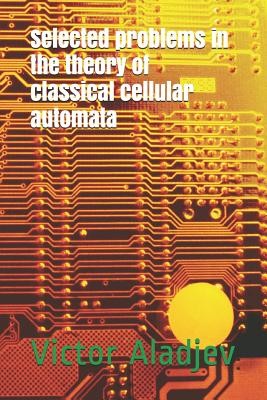
- Išsiųsime per 10–14 d.d.
- Autorius: Michael Leonid Shishakov
- Leidėjas: INDEPENDENTLY PUBLISHED
- ISBN-10: 173095037X
- ISBN-13: 9781730950377
- Formatas: 15.2 x 22.9 x 2.3 cm, minkšti viršeliai
- Kalba: Anglų
- Extra -15 % nuolaida šiai knygai su kodu: ENG15
Atsiliepimai
Aprašymas
In the book we present certain results of the work we have done in the theory of Classical Cellular Automata (CA). At present, these results form an essential constituent of the CA problematics. In particular, we have studied such problems as the nonconstructability problem in the CA, the decomposition problem of global transition functions in the CA, the extremal constructive possibilities, the parallel formal grammars and languages defined by the CA, the complexity of finite configurations and global transition functions in the CA, the modelling problem in classical CA, etc. At present, the CA problematics is a rather well developed independent field of the mathematical cybernetics that has a rather considerable field of various appendices. In addition, with the equal right the CA problematics can be considered as a component of such fields as discrete parallel dynamical systems, discrete mathematics, cybernetics, complex systems and some others. In our viewpoint, the book will represent an indubitable interest for students, post-graduates and persons working for doctor's degree of the appropriate faculties of universities, above all, of naturally scientific level along with teachers in subjects such as mathematical and physical modelling, discrete mathematics, automata theory, computer science, cybernetics, theoretical biology, computer technique, and a lot of others. In recent years, the classical CA models are one of the most promising simulating environments for various highly parallel discrete processes, objects and phenomena admitting reversible dynamics, that is enough important from a physical point of view, in the first place.EXTRA 15 % nuolaida su kodu: ENG15
Akcija baigiasi už 1d.06:59:53
Nuolaidos kodas galioja perkant nuo 10 €. Nuolaidos nesumuojamos.

- Autorius: Michael Leonid Shishakov
- Leidėjas: INDEPENDENTLY PUBLISHED
- ISBN-10: 173095037X
- ISBN-13: 9781730950377
- Formatas: 15.2 x 22.9 x 2.3 cm, minkšti viršeliai
- Kalba: Anglų




Atsiliepimai